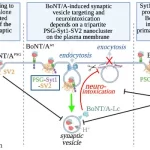Doctors Warned to Stop Telling Obese Patients ‘Eat Less, Move More’ Is Their Treatment
The post Doctors Warned to Stop Telling Obese Patients ‘Eat Less, Move More’ Is Their Treatment appeared first on Healthy Holistic Living.
The dialogue surrounding obesity treatment is undergoing a significant transformation, shifting away from the oversimplified advice of “eat less, move more” to a more nuanced understanding of obesity as a complex and multifaceted condition. Professor Donal O’Shea, a leading expert in the field, emphasizes the importance of changing the narrative for the treatment of obesity, pointing out the critical distinction between prevention and treatment. With medical advances rapidly evolving, the future promises a landscape where severe or complex obesity in developed countries could become a thing of the past. However, this future hinges on both the medical community’s approach to treating obesity and the broader societal understanding of its underlying causes and effective treatments.
In an era where the prevalence of obesity has surged alarmingly over the past four decades, the call for a paradigm shift in its treatment is louder than ever. Prof. O’Shea’s insights shed light on the intricate interplay of genetic, environmental, and lifestyle factors contributing to obesity, challenging the healthcare sector to adopt a more empathetic and scientifically informed approach towards those battling this condition. As we stand on the cusp of groundbreaking therapies and surgical interventions that promise more successful outcomes, the discourse is moving towards a more inclusive and holistic model of care, signaling a hopeful future for obesity treatment and management.
Understanding the Complex Nature of Obesity
Obesity is often perceived through a simplistic lens, focusing on the balance between calorie intake and physical activity. However, this perception fails to capture the intricate web of factors that contribute to obesity. Professor Donal O’Shea, a leading authority in the field, underscores the complexity of obesity, highlighting that it is influenced by 198 determinants categorized into seven groups, with the majority beyond an individual’s control. This revelation is crucial in dispelling the myth that obesity is solely a result of personal choice or lack of willpower. The genetic and environmental interactions that protect the body from weight loss are profound, showcasing obesity as a condition deeply rooted in biological mechanisms rather than mere lifestyle choices.
The shift in understanding obesity also reflects in the approaches toward its treatment. Traditional methods that advocate for reduced calorie intake and increased physical activity do not address the underlying causes of obesity for many individuals. Instead, the focus is now turning towards personalized medicine and treatments that target the unique biological factors contributing to each person’s obesity. This includes innovative therapies that regulate body fat through the immune system and medications that alter the sense of fullness, how much one eats, and the energy expended.
As we delve deeper into the science of obesity, it becomes apparent that a one-size-fits-all solution is ineffective. Recognizing obesity as a complex and chronic disease requires a multifaceted approach to treatment, one that encompasses not just dietary and physical activity changes but also genetic, environmental, and psychological considerations. This comprehensive understanding paves the way for more effective interventions, moving beyond the simplistic and often stigmatizing advice of the past.
The Evolution of Obesity Treatment: From Stigma to Advanced Therapies
The landscape of obesity treatment is witnessing a pivotal transformation, catalyzed by advancements in medical science and a shift in societal perspectives. The stigma historically associated with obesity has often led to oversimplified and ineffective advice, such as “just eat less and move more.” However, as Prof. Donal O’Shea points out, the future of obesity treatment lies beyond these dated notions, embracing a holistic and informed approach. This evolution is partly due to the recognition of obesity not just as a lifestyle issue but as a complex condition influenced by an array of factors, many of which are beyond individual control.
Recent years have seen a surge in the development of new therapies and surgical options that offer hope for more successful obesity treatment outcomes. Innovations in medical treatment are changing the way we understand the relationship between the immune system and adipose (fat) tissue, introducing medications that can significantly alter an individual’s sense of fullness, dietary intake, and even the amount of energy they burn. These advances are not merely about weight loss; they’re about addressing the various determinants of obesity at a molecular level, offering a more nuanced approach to a traditionally misunderstood condition.
Moreover, the inclusion of obesity in the chronic disease management framework reflects a significant shift in how health services approach its treatment. Ireland’s commitment to funding a model of care for obesity, despite previous setbacks due to recruitment embargoes and funding issues, signifies a promising move towards accessible and comprehensive care. This approach acknowledges the necessity of overcoming obstacles such as the high cost of new medications and the need for a supportive infrastructure to facilitate these advanced treatments. The journey towards effective obesity management is evolving, marked by an increased understanding of the disease’s complexity and a commitment to innovative treatments that offer a brighter future for individuals struggling with obesity.
Empowering Patients on Their Weight Journey
The conversation around obesity and its treatment is undergoing a much-needed transformation, moving towards a more empathetic and patient-centered approach. Prof. Donal O’Shea’s advice to medical professionals to ask, “Is it OK to discuss your weight today?” or “Where are you on your weight journey?” reflects a significant shift away from judgmental and oversimplified advice towards a more understanding and supportive dialogue. This change is not just about politeness; it’s about recognizing the complex emotions and challenges faced by individuals struggling with obesity. It’s about validating their experiences and acknowledging the journey they are on, which often involves navigating through a maze of misinformation, societal judgment, and personal struggles.
This respectful approach is crucial in a world where obesity is not only a physical condition but also carries a heavy psychological burden. Patients often face self-criticism, exacerbated by unhelpful comments from healthcare professionals and the stigma attached to their condition. By changing the narrative and focusing on empowerment rather than blame, healthcare providers can play a pivotal role in supporting their patients’ journeys. This includes providing access to the latest treatments and therapies, offering guidance on navigating the complexities of obesity, and, most importantly, offering a listening ear and an open heart.
The path to managing obesity effectively requires a partnership between patients and healthcare providers, one that is built on mutual respect, understanding, and a shared commitment to finding the best possible treatment solutions. It involves looking beyond the scale and seeing the individual, understanding their struggles, and recognizing their efforts. With the advancements in medical treatments and a shift towards a more compassionate approach to care, there is hope for those affected by obesity to embark on a successful and sustainable weight management journey, one that embraces their health and well-being in its entirety.
A Comprehensive List of Tips for Managing Obesity
In addressing obesity, a condition marked by its complexity and individual variability, a one-size-fits-all solution is impractical. However, there are several strategies that can support individuals in managing obesity more effectively. These tips, grounded in the latest research and expert advice, aim to empower individuals on their journey towards better health.
Understand Your Body’s Unique Needs: Recognize that every person’s body responds differently to diet, exercise, and medical treatments. Consulting with healthcare professionals to understand your specific health metrics and needs can provide a tailored approach to managing obesity.
Incorporate Physical Activity into Your Daily Routine: While “move more” is not the sole answer to obesity, integrating regular physical activity that you enjoy can improve your physical health and mental well-being. Whether it’s walking, swimming, cycling, or a dance class, find activities that fit your lifestyle and preferences.
Mindful Eating Practices: Develop a mindful approach to eating by listening to your body’s hunger and fullness cues, eating slowly, and enjoying your food. This can help improve your relationship with food and make eating a more intentional and enjoyable experience.
Seek Support for Mental Health: Obesity and mental health are often intertwined. Seeking support from mental health professionals can help address any underlying emotional or psychological factors contributing to obesity.
Consider Medical Interventions When Necessary: For some, lifestyle changes alone may not be sufficient to manage obesity effectively. Don’t hesitate to discuss with your healthcare provider about the possibility of medications, weight-loss jabs, or surgery as part of your treatment plan.
Stay Informed About New Treatments: The field of obesity treatment is rapidly evolving. Keeping informed about the latest treatments and medical advances can open up new avenues for managing obesity.
Build a Supportive Network: Surround yourself with people who support your goals and understand the challenges you face. This could include family, friends, healthcare professionals, or support groups for individuals dealing with obesity.
Set Realistic Goals: Setting achievable goals can help keep you motivated and provide a sense of accomplishment. Celebrate your progress, no matter how small, and use setbacks as learning opportunities rather than reasons for self-criticism.
Prioritize Sleep and Stress Management: Poor sleep and high stress can contribute to weight gain. Prioritize good sleep hygiene and stress-reduction techniques such as meditation, yoga, or deep-breathing exercises.
Implementing these tips requires patience, perseverance, and a compassionate understanding of one’s own journey. Remember, managing obesity is not solely about losing weight but about improving overall health and quality of life.
Navigating the Future of Obesity Treatment
The future of obesity treatment is on the cusp of a revolutionary change, marked by significant medical advances and a shift towards more compassionate care models. As Prof. Donal O’Shea highlights, the landscape of managing obesity is evolving, with the promise of eradicating severe and complex obesity in the developed world not far from reality. This optimistic outlook is grounded in the rapid development of treatments that address the multifactorial nature of obesity, from genetic predispositions to environmental influences.
Advancements in Medical Treatments: The introduction of new medications and surgical procedures offers hope for more effective management of obesity. These treatments are becoming more sophisticated, targeting the biological mechanisms that contribute to obesity, such as the regulation of appetite, metabolism, and the body’s ability to store and burn fat.
Shifting from Stigma to Support: Alongside medical advancements, there is a growing recognition of the importance of addressing the stigma surrounding obesity. By treating obesity as a chronic disease rather than a moral failing, healthcare providers can offer support that is both empathetic and evidence-based. This shift not only improves the quality of care but also encourages individuals to seek treatment without fear of judgment.
Access to Comprehensive Care: The development of comprehensive care models that include dietitians, psychologists, and specialized doctors is essential in providing holistic treatment for obesity. Ireland’s model of care for obesity, which has recently seen improvements in funding and support, serves as a promising example of what can be achieved when healthcare systems recognize the complexity of obesity and the need for a multifaceted approach.
Overcoming Challenges: Despite these advancements, challenges remain, such as the high cost of new treatments and the need for widespread access to specialized care. Addressing these challenges requires a concerted effort from policymakers, healthcare providers, and the community to ensure that effective obesity treatments are accessible to all who need them.
As we navigate the future of obesity treatment, it is clear that a combination of medical innovation, compassionate care, and comprehensive support systems will be key to overcoming this global health challenge. The journey towards a future where obesity is no longer a prevalent issue is underway, offering hope and a path forward for millions affected by this condition.
A Holistic Approach to a Healthier Tomorrow
The journey towards effective obesity treatment and management is evolving, marked by a significant shift in understanding, approach, and care. As we move away from the reductive advice of “eat less, move more,” and delve deeper into the complexities of obesity, it becomes clear that a holistic approach is not just beneficial but necessary. Professor Donal O’Shea’s insights underscore the importance of this evolution, highlighting the need for treatments that address the multifaceted nature of obesity, encompassing genetic, environmental, psychological, and lifestyle factors.
The future of obesity treatment promises a more inclusive, empathetic, and scientifically informed landscape. Advances in medical treatments, coupled with a shift towards eliminating stigma and offering comprehensive support, pave the way for more effective management of obesity. This future not only offers hope for those struggling with obesity but also challenges the existing narratives and encourages a broader societal change in how we perceive and address this complex condition.
Ultimately, the goal is to foster an environment where individuals feel supported and empowered in their journey towards health and well-being, without the burden of judgment or oversimplification. By embracing a multifaceted approach that includes medical, psychological, and lifestyle interventions, we can look forward to a healthier tomorrow, not just for those battling obesity but for society as a whole.
As we continue to advance in our understanding and treatment of obesity, let us commit to a path of compassion, innovation, and inclusivity, ensuring that everyone has the opportunity to lead a healthier and more fulfilling life.
The post Doctors Warned to Stop Telling Obese Patients ‘Eat Less, Move More’ Is Their Treatment appeared first on Healthy Holistic Living.












